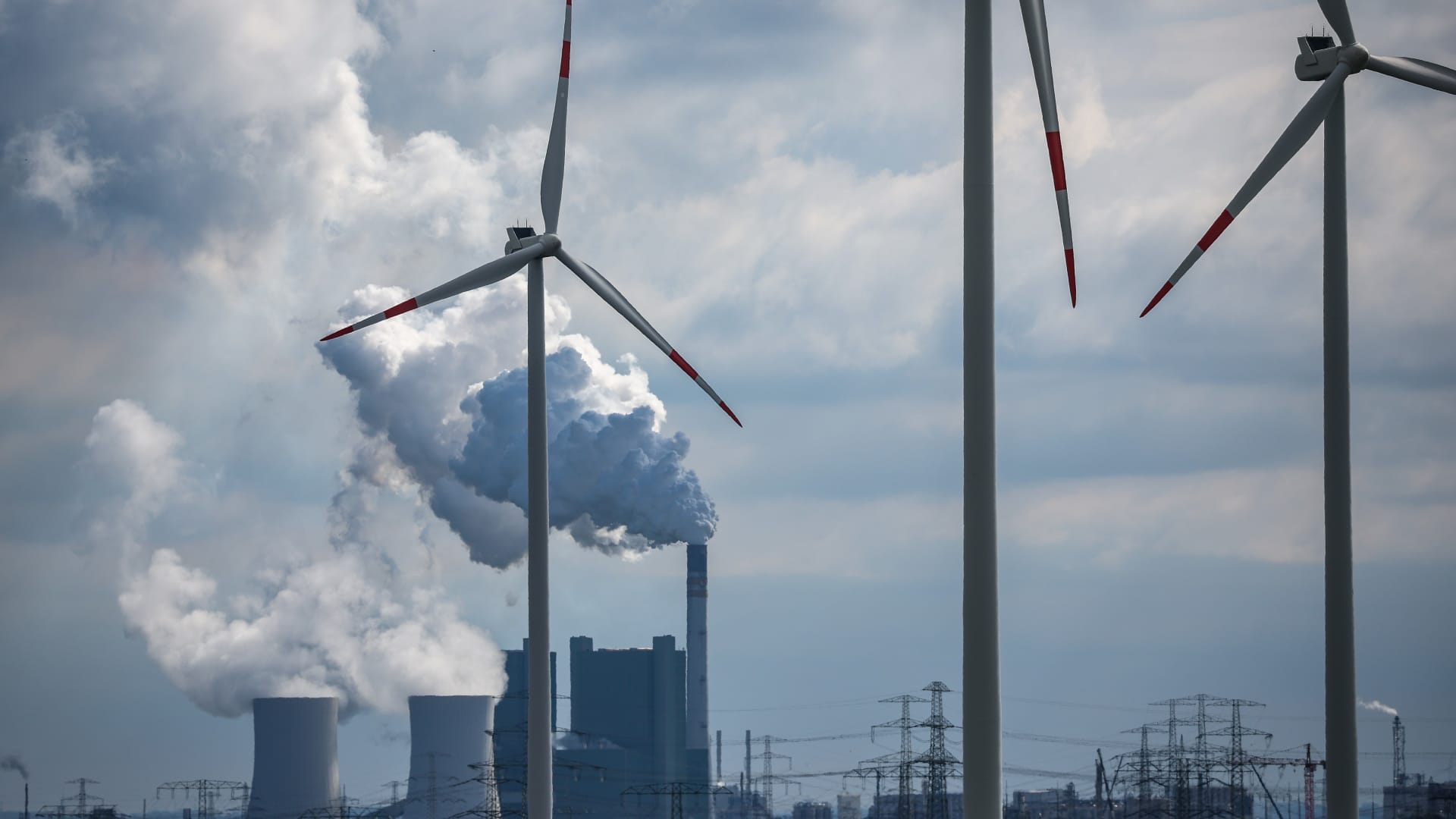Wind turbines and a lignite-fired power plant photographed in in Germany.
Jan Woitas | Picture Alliance | Getty Images
Demand for oil, coal and natural gas is set to peak before the end of this decade, with fossil fuels’ share in the world’s energy supply dropping to 73% by the year 2030 after being “stuck for decades at around 80%,” the International Energy Agency said Tuesday.
A transformative shift in how the planet is powered is also underway, with the “phenomenal rise of clean energy technologies” like wind, solar, heat pumps and electric cars playing a crucial role, according to a statement accompanying the IEA’s World Energy Outlook 2023 report.
Energy related carbon dioxide emissions are also on course to peak by the year 2025.
Despite these seismic shifts, the IEA says more effort is required to limit global warming to 1.5 degrees Celsius, a key goal of the Paris Agreement on climate change.
The IEA’s analysis of governments’ “current policy settings” shows the world’s energy system is on course to look very different in the next few years.
In its statement, the Paris-based organization said it sees “almost 10 times as many electric cars on the road worldwide” in 2030, with “renewables’ share of the global electricity mix nearing 50%,” higher than the roughly 30% today.
Among other things, heat pumps — as well as other electric heating systems — are on course to outsell boilers that use fossil fuels.
“If countries deliver on their national energy and climate pledges on time and in full, clean energy progress would move even faster,” the IEA’s statement said.
“However, even stronger measures would still be needed to keep alive the goal of limiting global warming to 1.5 °C,” it added.
“As things stand, demand for fossil fuels is set to remain far too high to keep within reach the Paris Agreement goal of limiting the rise in average global temperatures to 1.5 °C,” the statement went on to say.
In a sign of how high the stakes are, the IEA’s report said its Stated Policies Scenario was now “associated with a temperature rise of 2.4 °C in 2100 (with a 50% probability).”
Tuesday’s report reaffirms the content of an op-ed published in September 2023 that was authored by the IEA’s executive director, Fatih Birol, and published in the Financial Times.
In remarks published Tuesday, Birol sought to emphasize the huge potential for change while also highlighting the massive amount of work that still needs to be done.
“The transition to clean energy is happening worldwide and it’s unstoppable,” he said. “It’s not a question of ‘if’, it’s just a matter of ‘how soon’ — and the sooner the better for all of us,” he added.
“Governments, companies and investors need to get behind clean energy transitions rather than hindering them,” Birol said.
“There are immense benefits on offer, including new industrial opportunities and jobs, greater energy security, cleaner air, universal energy access and a safer climate for everyone.”
“Taking into account the ongoing strains and volatility in traditional energy markets today, claims that oil and gas represent safe or secure choices for the world’s energy and climate future look weaker than ever,” Birol said.
COP28 nears
The IEA’s report comes just weeks ahead of the U.N.’s COP28 climate change summit in the United Arab Emirates.
The shadow of the Paris Agreement, reached at COP21 in late 2015, looms large over the IEA’s report.
The landmark accord aims to “limit global warming to well below 2, preferably to 1.5 degrees Celsius, compared to pre-industrial levels.”
The challenge is huge, and the United Nations has previously noted that 1.5 degrees Celsius is viewed as being “the upper limit” when it comes to avoiding the worst consequences of climate change.

